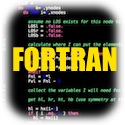
When putting work up on GitHub, it really pays to have a nice Markdown previewer or editor for building your README.md file as it's the first thing a new user sees when coming to your project page on GitHub. You want to make a nice impression on the user, have good introductory docs, and even the license on the project, and all this is going to be rendered in Markdown - at least GitHub's version of Markdown.
When I was initially doing this, I was using BBEdit, and while it had a preview that worked with Markdown, it didn't support the GitHub CSS that it was going to be rendered in, and it still required that I edit the file, check it in, push it up to GitHub, and then I could see if I liked what it looked like. Not a great workflow, really.
So this morning I was on the hunt for a decent Markdown editor for Mac OS X. I knew there were several available in the Mac App Store, so I was willing to buy one, but I wanted to search the web first, to see what the opinions were out there of the best one to get. I've seen several, and there are two that seemed likely candidates, and I decided to try one, but I'm not really sure that it's what I am looking for. Still, it appears to be a lot closer to what I'm looking for than what I'm doing now.
Mou is a free app that does a split-pane view of source and rendered text. The position of the split pane isn't really resizable like a lot of Mac apps, but it is moveable in the sense that it can be moved by some menu commands to change the split from 1:1 to 1:2 or 2:1, and such. It's not ideal, but it's free. It's certainly a very nice start in the right direction as it currently support GitHub flavored Markdown.
BBEdit can work with Markdown, and even preview it, but it doesn't really use the GitHub style for the preview, and try as I might, I was totally unable to get some CSS file for BBEdit's preview that would work. There were perl and PHP versions, but that's far too much, and the Mac App would then be far better.
The problems with Mou are that it's taking up a ton of space on the screen. There's another application called Valletta 1.0, and it's got a unique take on the two-pane system: it keeps it all in one by having the line with the cursor in input mode and the rest of the document in display mode. This is a good idea, but if you're moving between different sized text, you're going to be having your text move all over the place. What I want is a great preview.
Mou does the preview good enough, and it's got a simple editor built in. Not bad for free. There's another app that does just the previewing, and it's on the Mac App Store for $4 - Marked. I might end up going for this as it's exactly what I'm looking for. I can edit in BBEdit all I want, and then preview in a good GitHub renderer and then check it in and push it all up to GitHub.
[4/10] UPDATE: I ended up getting Marked from the Mac App Store. They updated it to 1.4, and included the color syntax highlighting on GitHub. It's exactly what I'm looking for. $4 well spent. I can edit it in BBEdit, save, and it's automatically updated in Marked. Very nice indeed.




